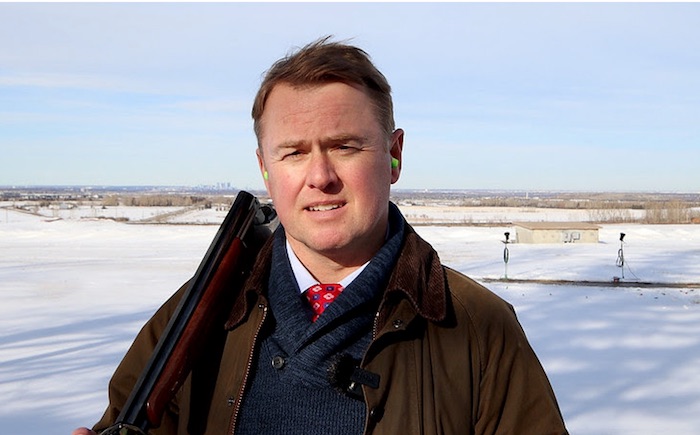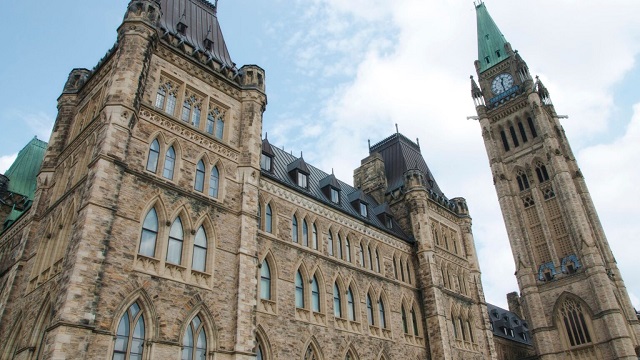Alberta
Province moves to protect firearms owners from federal confiscation effort

Second action taken under the Alberta Firearms Act
Alberta will require individuals and organizations employed to confiscate firearms to first be licensed by the province.
This action fulfils a commitment under the Alberta Firearms Act to require individuals or organizations including police officers to first be licensed by the province.
Despite opposition from provinces and territories to the use of police resources, the federal government is signalling that it is prepared to take front-line police officers off the street to implement the federal firearms confiscation program.
Public Safety Canada also appears to be considering contracting with untrained personnel to supplement the use of policing resources.
“Public Safety Canada is a large and inefficient bureaucracy. It does not have the resources or the wherewithal to fulfil its plans. In normal circumstances, the federal government would have hit the pause button. Unfortunately, we continue to receive indications that the opposite is occurring. Their decision to move forward with the confiscation program will jeopardize provincial requirements for the safe handling, transportation and storage of firearms. We will not allow that to happen.”
As Canadians’ concerns about violent crime rise, the decision to potentially waste policing resources and contract with untrained personnel is reckless and would compromise public safety by jeopardizing the safe storage and handling of firearms, two areas of provincial jurisdiction.
“The Alberta chief firearms office continues to call on the federal government to focus its resources on illegal firearms activity rather than targeting law-abiding firearms owners. Taking firearms away from responsible owners will not improve public safety.”
Quick facts
- This regulation does not affect normal police activity, such as having to confiscate a firearm as part of an investigation.
- There are 341,988 possession/acquisition licence holders in Alberta.
- Albertans own the second-highest number of firearms classified as restricted or prohibited by the federal government.
- There are 127 approved shooting ranges and more than 650 firearms-related businesses in Alberta.
- On average, 30,000 Albertans complete mandatory firearms safety course training annually, as a first step to obtaining their firearms licence. In 2021, that number jumped to 38,000, indicating a significant upward trend in legal gun ownership in the province.
Alberta
Former senior financial advisor charged with embezzling millions from Red Deer area residents

News release from Alberta RCMP
Former senior financial advisor charged for misappropriating nearly $5 million from clients
On April 4, 2024, the RCMP’s Provincial Financial Crime Team charged a Calgary resident for fraud-related offences after embezzling millions of dollars from his clients while serving as a senior financial advisor.
Following a thorough investigation, the accused is alleged to have fraudulently withdrawn funds from client accounts and deposited them into bank accounts he personally controlled. A total of sixteen victims were identified in the Red Deer area and suffered a combined loss of nearly $5 million.
Marc St. Pierre, 52, a resident of Calgary, was arrested and charged with:
- Fraud over $5,000 contrary to section 380(1)(a) of the Criminal Code; and,
- Theft over $5,000 contrary to section 344(a) of the Criminal Code.
St. Pierre is scheduled to appear in Red Deer Provincial Court on May 14, 2024.
“The ability for financial advisors to leverage their position to conduct frauds and investment scams represents a significant risk to the integrity of Alberta’s financial institutions. The investigation serves as an important reminder for all banking clients to regularly check their accounts for any suspicious activity and to report it to their bank’s fraud prevention team.”
- Sgt. John Lamming, Provincial Financial Crime Team
The Provincial Financial Crime Team is a specialized unit that conducts investigations relating to multi-jurisdictional serious fraud, investments scams and corruption.
Alberta
Political parties will be part of municipal elections in Edmonton and Calgary pilot projects

Strengthening Alberta’s local elections
Alberta’s government is introducing legislation to ensure Albertans can rely on transparent, free and fair elections, and municipally-elected officials have clearer accountability measures.
In a democratic society, Albertans expect their local elections to be free and fair, and their elected officials to be held to account by clear rules that govern their local councils. The Municipal Affairs Statutes Amendment Act proposes amendments to the Local Authorities Election Act (LAEA) and the Municipal Government Act (MGA) to add greater transparency to local election processes and ensure local councils and elected officials continue to remain accountable to the citizens who elected them.
“Our government is committed to strengthening Albertans’ trust in their local governments and the democratic process that elects local leaders. The changes we are making increase transparency for Alberta voters and provide surety their votes will be counted accurately. We know how important local democracy is to Albertans, and we will work with local authorities to protect and enhance the integrity of local elections.”
Local Authorities Election Act
Albertans expect free and fair elections and that’s why it’s important we strengthen the rules that govern local elections. To strengthen public trust in local elections, Alberta’s government will eliminate the use of electronic tabulators and other automated voting machines. All Albertans should be able to trust the methods and results of local elections; requiring all ballots to be counted by hand, clarifying rules and streamlining processes for scrutineers will provide voters greater assurance in the integrity of the results.
All eligible Albertans should be able to vote in local elections without impediment. Alberta’s government will limit the barriers for eligible voters to cast a ballot by expanding the use of special ballots. Currently, special ballots can only be requested for very specific reasons, including physical disability, absence from the municipality, or for municipal election workers. By expanding the use of special ballots, the government is encouraging more voter participation.
Amendments in the Municipal Affairs Statutes Amendment Act would increase transparency in local elections by enabling political parties at the local level. Political parties would be enabled in a pilot project for Edmonton and Calgary. The act will not require candidates to join a political party in order to run for a local or municipal office, but will create the opportunity to do so.
In addition, proposed changes to the Local Authorities Election Act would allow municipalities the option to require criminal record checks for local candidates, thus increasing transparency and trust in candidates who may go on to become elected officials.
Municipal Government Act
The role of an elected official is one with tremendous responsibility and expectations. Changes proposed to the Municipal Government Act (MGA) will strengthen the accountability of locally elected officials and councils. These include requiring mandatory orientation training for councillors, allowing elected officials to recuse themselves for real or perceived conflicts of interest without third-party review and requiring a councillor’s seat to become vacant upon disqualification.
If passed, the Municipal Affairs Statutes Amendment Act will also unlock new tools to build affordable and attainable housing across Alberta. Proposed amendments under the MGA would also create more options for municipalities to accelerate housing developments in their communities. Options include:
- Exempting non-profit, subsidized affordable housing from both municipal and education property taxes;
- Requiring municipalities to offer digital participation for public hearings about planning and development, and restricting municipalities from holding extra public hearings that are not already required by legislation; and
- Enabling municipalities to offer multi-year residential property tax exemptions.
Municipal Affairs will engage municipalities and other partners over the coming months to hear perspectives and gather feedback to help develop regulations.
Quick facts
- The LAEA establishes the framework for the conduct of elections in Alberta municipalities, school divisions, irrigation districts and Metis Settlements.
- The MGA establishes the rules governing the conduct of local elected officials once on council, as well as the overall administration and operation of municipal authorities in Alberta, including any policy those authorities may wish to implement.
Related information
-

 COVID-1916 hours ago
COVID-1916 hours agoJapanese study finds ‘significant increases’ in cancer deaths after third mRNA COVID doses
-

 Business14 hours ago
Business14 hours agoMaxime Bernier warns Canadians of Trudeau’s plan to implement WEF global tax regime
-

 Brownstone Institute12 hours ago
Brownstone Institute12 hours agoA Coup Without Firing a Shot
-

 COVID-1910 hours ago
COVID-1910 hours agoWHO Official Admits the Truth About Passports
-

 Energy8 hours ago
Energy8 hours agoAnti-LNG activists have decided that they now actually care for LNG investors after years of calling to divest
-

 Bruce Dowbiggin13 hours ago
Bruce Dowbiggin13 hours agoCoyotes Ugly: The Sad Obsession Of Gary Bettman
-

 Freedom Convoy11 hours ago
Freedom Convoy11 hours agoOttawa spent “excessive” $2.2 million fighting Emergencies Act challenge
-

 Frontier Centre for Public Policy15 hours ago
Frontier Centre for Public Policy15 hours agoThe tale of two teachers


